#anti xenophobia
Text
Maybe I lose some followers along the way but that is okayyy I am not sorry to see them go ✌️
#sorry for the last poll. it’s deleted. idk where my brain was when I q’d that one#fuck mcdonalds#for the record#poll blog#tumblr polls#pick one#free palestine#fuck israel#anti zionisim#anti genocide#anti capitalism#poll#human rights#social justice#racial justice#fuck the patriarchy#fuck white supremacy#fuck colonialism#fuck colonizers#fuck the united states#anti islamophobia#fuck antisemitism#fuck genocide#anti xenophobia#anti military#fuck the police#fuck the occupation#free gaza#palestine will be free#i stand with palestine
609 notes
·
View notes
Text
Xenophobia in Celtic nations' independence movements: A guide to the red flags
This is something I've wanted to write about for a long time - I want to go over this in more detail when I can. But for now a short guide to the most egregious red flags is warranted imo.
'Celtic nations' refers to the modern regions where Celtic languages are still spoken, namely Ireland, Wales, Scotland, Isle of Man, Cornwall and Brittany. Its important to know that these places are called Celtic not because of who lives there, but because of the languages which have survived there. Its a common error to think 'Celtic nations'= Celtic people. In my field (Celtic Studies) Celtic is generally only applied as a descriptor in the sense of language family.
Because of the popular misinformation 'Celtic nation' = 'Celtic' population, xenophobia rears its ugly head in multiple corners of the various Celtic nations' independence movements. Left unchecked, this xenophobia develops into outright racism. Which is why it's important to recognise these red flags when you see them.
'Acceptable Targets':
The reason why some of the xenophobia goes unchecked (and develops into worse kinds) is because a lot of xenophobia in the Celtic nations is aimed at 'acceptable' targets - which no-one bats an eye about when this rhetoric is deployed. But were it deployed against any other nationalities, it would immediately obvious that it isn't acceptable. Now, I will preface this with that there's nuance with these nationalities and there's something to be said about whether some of it is 'punching up'. However, because of how accepted it is to be casually xenophobic against these privileged groups, it is signalled through that that it's okay to be xenophobic in general to less privileged groups. I feel its important to address the first rung on the ladder before tackling any higher up.
Without beating around the bush, I'm talking about the English (and French. But I know more about the English so that's where my focus will be).
Yes, pro-independence anti-English memes and jokes can be funny. Most of them do stay on the side of punching up and many raise important points on the effects of English imperialism on the Celtic languages. However, there's a fine line between punching up and voluntarily using and wielding xenophobic arguments and rhetoric to get one up on the English. This, in my view, only paves the way for worse kinds of xenophobia and to me is a canary in the coal mine situation. But I also cannot talk about this without also making it clear that it is possible to recognise that sometimes a line is crossed without validating English persecution complexes à la 'you can't even say you're English these days' or similar nonsense. Both things can be true at once: Casual xenophobia against the English does exist, however, its existence should not be used to validate English persecution complexes. On the contrary, we should fight that also.
The reason why this canary in the coal mine has gone unnoticed is because of the reluctance to actually point out xenophobia against the English in pro-independence movements due to fear of accidentally validating the claims Englishness as a concept is under threat or due of fear of ostracism from Celtic nationalist movements. There is little danger of actually validating the former sentiment, however, because of a crucial fact. The people in the Celtic nations being casually xenophobic and the English with persecution complexes have one massive trait in common: they're both xenophobic in incredibly similar ways. If it's hard to tell apart an English nationalist from one in a Celtic nation if you were to swap the target of their ire, congratulations, your movement has a xenophobia problem /s.
English nationalist: We should tighten controls on our borders to keep all those foreigners and immigrants out. Make England English again.
(Xenophobic) Celtic nationalist: We should fight for our independence so we can tighten controls on our borders to keep all those foreigners and immigrants out. Make [insert Celtic nation] [nationish] again.
Many Celtic nationalists will also present ahistorical facts or manipulated versions of history in order to seem more valid or legitimate. It's a massive red flag when someone's grasp of history seems more emotional than grounded in historical fact. Using Welsh history as an example, I've seen this type of Celtic nationalist blatantly lie about historical figures, literally deface ancient castles in Wales based on a poor grasp (and respect for) history and conflate modern English and Welsh identity with ancient entities which do not map neatly 1:1. The ahistory presented by individuals or groups fancying themselves as leaders in their respective movements are unquestioningly accepted by others in the Celtic nationalist movements. This creates a manufactured mythology, belief in which confers in-group status and out-group status. A mythology which reinforces beliefs already present in the movement - such as the right to be casually xenophobic as long as it's against the 'right people' and as long as it is done in the name of protecting or advocating for their nation.
It was never going to stop at English people:
Once casual xenophobia is established as being tolerated, expected or even encouraged in the various independence movements, it enables xenophobes to be bolder in their rhetoric. Because casual xenophobia against 'deserving' nations like England is dismissed as 'just banter' and not taken seriously, it sends a signal to everyone in that movement that xenophobia is okay if its used against the 'right groups. While it may roll like water off a duck's back to the average English person, other, more vulnerable people do not fare so well.
To use an actual example I've seen out in the wild, some people will claim that you can't be considered Welsh unless you were born in Wales. Many people won't question this or interrogate the implications. Firstly, this comes back to how Celtic nationalists can often sound exactly the same as English nationalists (blood and soil nationalism is common to English and Celtic nationalisms). Secondly, this rhetoric also simulataneously invalidates several ostensibly Welsh people, such as Saunders Lewis (born in Liverpool) and Jan Morris (born in Somerset). In most cases, anyone who lives in X country / is a citizen of X country can or should be able to describe themselves as Xish.
The perennial anxiety of Celtic nationalists is that because most of the Celtic nations (excepting the Republic of Ireland) are constituent parts of a state (either the UK or France) and not independent entities in their own right, there is no control over borders and there is no system by which someone can be made a Welsh, or Breton or Cornish etc. citizen - and thus no way to control [nation]ness via those means. When Celtic nationalists agitate for independence, it's important to interrogate their motivations. If they are motivated primarily by a desire to control who is considered Xish and who isn't, that's a red flag.
English nationalists have this citizenship problem too, since England is not an independent nation, but a country within the UK. However, most English nationalists overlap heavily with British nationalists in general, so most agitation for 'sovereignty' gets channelled into British nationalism. This is one of the key differences between English and Celtic nationalists - the former is usually very fond of the United Kingdom, the latter detests it and wants to secede. This leaves Celtic nationalism in a tight spot - there is a desire for self determination which is currently impossible to achieve or enforce. And that makes a lot of Celtic nationalists anxious. And that anxiety leads to feeling like they need to prove their commitment to the cause by performing xenophobia, which validates their in-group status while simultaneously establishes the out-group.
A person born in England but who lives in Wales, perhaps speaks Welsh or considers themself Welsh will, in general, be mostly unharmed by 'you have to be born in Wales to be Welsh' rhetoric. But you know who might be? So many immigrants who consider themselves Welsh who make Wales a great place to be. Immigrants in Wales (especially nonwhite immigrants) may feel excluded by such rhetoric. It's almost on par with "where are you really from" sentiments. And this is an entirely self-defeating kind of rhetoric for Celtic nationalists to take up. Here we have thousands upon thousands of people who willingly want to live and work in Celtic nations - many of whom will also learn the language - undoing centuries of English and French propaganda that diminished the worth of Celtic nations and their languages* - and Celtic nationalists want to exclude these people from claiming the nationality of their adopted nations because... they didn't happen to be born here. Got it.
Xenophobia, once established, cannot be contained:
Xenophobia ripples outwards. Once it is established it is okay to be xenophobic to certain groups, other groups begin to be included in the xenophobia. This then has the potential to expand into outright racism. In Ireland, for example, there's significant amounts of antiblack racism present in the nationalist movement. Very recently, due to the actions of the UK government over the Rwanda Plan, the Republic of Ireland has gotten frustrated at the amount of immigrants attempting to reach their shores after abandoning attempts to claim asylum in the UK (out of fear of being sent to Rwanda). There's a "we don't do that here" attitude in many Celtic nationalist movements with regards to English imperialism, xenophobia, racism and anti-immigration. But not only do we do that here - it's worryingly integral to some people's visions for their nation's independence! You end up with complacency because many will take a literal no true Scotsman approach to Celtic nationalism and pretend that such people aren't really part of the movement. The problem is, is that they are here and regularly hijack otherwise unproblematic movements.
There are many routes through which Celtic nationalists can get radicalised into becoming massively xenophobic in order to fight for their respective nation's independence. All of them stem from real, legitimate problems in each nation whose cause has been misidentified.
One way is through opposition to second homes. On all counts, a noble goal and a very legitimate problem which I myself am invested in fighting. But the ways in which this problem is addressed often veer into questionable territory. If the focus is on "how dare those people from over there come over here" instead of "how dare a very small group of people monopolise housing for holiday lets at the expense of locals" there's a problem. The problem isn't people not from [place] holidaying there, it's the people who monopolise housing for their own profit which reduces housing available for locals and destroys community. In Aberystwyth I've heard some appalling sentiments against people from the Midlands - borderline if not outright classism around their appearances, mannerisms and accents. Sneering at random families visiting the beach isn't going to help anything and only exposes thinly veiled bigotry in whoever is making such remarks.
As already mentioned, another way radicalisation into xenophobic Celtic nationalism can occur is through mythologised 'history' which has been manipulated to suit the needs of the person or people making the claim. Lately, I've been seeing a rise in Welsh 'history' groups rife with disinformation and outright misrepresentation of historical events which are so designed to keep people angry about historical injustices against Wales. There are plenty of real historical injustices which can be talked about - but the 'history' presented in these groups is often fabricated or twisted to make things worse than they were or are stripped of nuance which perhaps paints certain historical figures less favourably than the authors would have liked. Not to mention superimposing modern nationalism onto ancient peoples is also just accepted as fine to do. Here is a screenshot of a Welsh 'history' group shared in a Welsh learning group I'm in. I can and will do a deeper dive into this topic in particular when I can. For now I'll mention the most important things to notice:
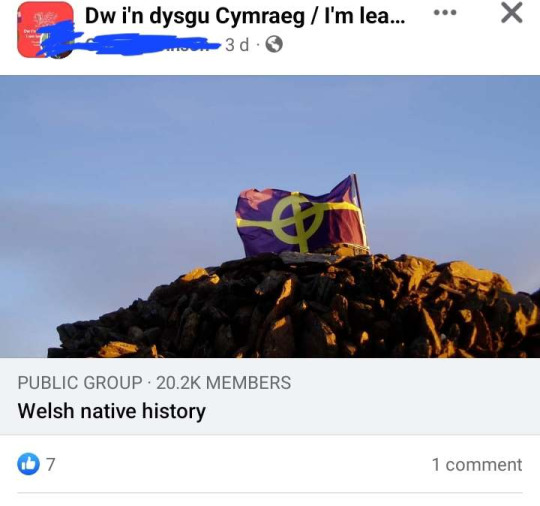
As mentioned in one of my other posts on this topic - the term 'native' is frequently misused in a Celtic context. Here, it sets up the basic in-group/out-group dynamic from the start and creates a setting in which members of the group are privy to the 'real' history while others are not. A brief glance at posts in this group makes that quite clear. The flag in the image is a representation of Y Groes Naid - supposedly a piece of the True Cross kept at Aberconwy. Now, there are ways to depict this cross which aren't so dogwhistley - so I'm immediately suspicious this image was chosen on purpose. Right down to the fact there's plausible deniability if anyone tries to point out how much the flag looks like the white supremacist Celtic Cross symbol, since it's Y Groes Naid, right?
I will wrap this up with that as a Celticist, I see far too many people uncritically supporting certain Celtic nationalist movements simply because they are pro-independence. Turning a blind eye to 'acceptable' xenophobia and choosing to believe ahistorical versions of history because it better suits their politics. This must be resisted - we can advocate for the independence of Celtic nations which desire it without relying upon these means. It can be done, I promise. But the path to that means dismantling systems of oppression which exist within Celtic nationalist movements. Awareness of the problem in the first place is a good place to start.
Reblogs and comments are welcome on this post to raise awareness of the issue and actually talk about these things.
Diolch am darllen!
#cymblr#tymblr#Celtic#celtic studies#celtic languages#celtic nations#racism cw#(in case)#xenophobia#anti xenophobia#antiracism#celtic history#celtic mythology#welsh nationalism#annibyniaeth#annibyniaeth wrthfasgaidd#antifascism#Ireland#Wales#Scotland#Isle of Man#Cornwall#Brittany#I didn't have time to touch on pan-celtic nationalism but that's a whole nother beast#reblogs welcome#long post
100 notes
·
View notes
Note
can I rq a xenogender themed spike stimboard with crunchy slime and stars please









Xenogender Spike with stars & crunchy slime for Anon
(X) (X) (X)
(X) (X) (X)
(X) (X) (X)
#my little pony g4#mlp g4#mlp#my little pony#mlp stim#my little pony stim#my little pony stimboard#mlp stimboard#friendship is magic#my little pony friendship is magic#mlp friendship is magic#my little pony fim#mlp fim#stimboard#my stimboards#star stim#stars stim#spike the dragon#mlp spike#crunchy slime stim#crunchy slime#stars#star#xenogender#anti xenophobia#xenophobes dni#dni xenophobes
23 notes
·
View notes
Text
Being anti zionist is not antisemitic. Being anti zionist is not being xenophobic. Condemnation of a government that is committing an active genocide is not being critical of the Jewish religion or those who practice it. They are entirely separate. Palestine is facing an ethnic cleansing on the same level as the holocaust. Do not stay quiet for fear of backlash. People are dying. Little children are being killed. Palestine must be free.
#palestine#israel#boycott israel#anti zionisim#anti idf#idf#anti xenophobia#free palestine#palestinian genocide
5 notes
·
View notes
Text
"I can't be racist towards [X] because [X] isn't a race!" is such a smokescreen of an argument.
there is a pretty glaring logical fallacy in this statement that intentionally or not ignores the historical and societal realities of race, and it's tempting to see that and litigate that with the person who says this.
however, that's just obfuscating a more important underlying intent to this statement. it's not important if [X] is a racialized group. what IS important is that this argument is an attempt to justify bigotry towards [X] by claiming that their bigotry is different than racism. this sucks.
the argument hidden in this statement is that while racism is bad, the bigotry that they are expressing is entirely appropriate because it's not racism. but they know that that position is indefensible, so they have to cloak it under a layer a nonsensical pedantics that distracts interlocutors into trying to define what "race" means instead of engaging with the core issue. saying or doing something bigoted towards a marginalized group of people, regardless of the nature of their marginalization, is wrong. on some level, they probably know that but don't want to be confronted about that because they might be forced to change some of their attitudes and/or behaviors. they want to avoid that kind of introspection because they are scared and in a position where they can leverage their fear to get power and status over others.
so, when you see this argument, don't get tricked by their bad faith bullshit and cut right to point. put them in a spot where they either have to admit their bigotry outright or face the idea that they need to change. don't let them hide.
#political#politics#leftist#socialist#anarchist#communist#antifascism#anti racism#anti bigotry#scout's brain#anti xenophobia
7 notes
·
View notes
Text
friendly reminder!!
if you're RACIST, you're NOT alt
if you're ANTI-LGBTQ+, you're NOT alt
if you're XENOPHOBIC, you're NOT alt
if you're ABLEIST, you're NOT alt
if you're RIGHT WING, you're NOT alt
be a fuckin person or get outta the pit, fucker
AND IF YOU'RE A CAPITALIST PIG, GET THE FUCK OUT OF MY FACE!!
#brain thoughts#saw way too many “alt” ppl with white supremacist dog whistles on twitter today#edtwt is full of these ppl apparently#alt#punk#anti fascism#anti racism#anti xenophobia#anti ableism#anti right wing#ant capitalism#tw edtwt#learn to be fuckin person
5 notes
·
View notes
Note
Надеюсь, ты осознаешь, что описала себя под эффектом Даннинга-Крюгера. Ведь совершенно не зная ни человека, ни ситуации, ни посыла творчества, возомнила себя экспертом в этом, и старательно делаешь вид, будто бы "раскусила дешёвку". В то время как адекватный человек с адекватным уровнем восприятия себя и окружающего мира, когда видит что-то, что ему не нравится, проходит мимо. А не бежит на всех парах и тэгах кричать "как же вы беспросветно глупы".
Экспертность в чем, в троллинге? 🌚
Я просто не могу пройти мимо такого интересного фандомного фрика с мощным комбо из комплексов и богатым бэкграундом треш-контента 💋
Кста добавлю к предыдущему ответику самое важное - Катя, ты нацистка. То че ты сюда пару недель назад писала это полный пиздец. У меня аллергия на фашизм, нацизм, и национализм. Это раковая опухоль, которую нужно выжигать напалмом.
Где ты адекватная, где ты добрая, в каком месте? Ты желаешь целой нации сдохнуть, да ты невменяемое уебище, которое нужно изолировать от общества.
Авторы этого блога боятся, что тебе в твоем городе попадется какой-то фанат Цири и ты его прирежешь с психу :(
1 note
·
View note
Text
High Lord Thesan of the Dawn Court

thesan is the prettiest high lord
thesan is the smartest high lord
thesan is the most competent high lord
#think about it#gay icon#feminist#anti fae racism anti xenophobia#underrated king#do you see that look#that's him judging his fellow high lords for doing a terrible fucking job#watch me lead the campaign for thesan as high king#tarquin can be his second#thesan#dawn court#acotar
92 notes
·
View notes
Text
was looking on ao3 for some kataang fics and saw yet another zvtara fic in our tag and clicked on it because I’m a hater first and foremost but my god…

LMAO
nah… the way they project this idea that Aang views Katara as a machine to repopulate the airbenders when not once did he or will he ever act that way canonically. holy shit I just??? where the actual fuck does this concept even come from? they want Katara to be his abuse victim sooooooo bad 😂

and what the cinnamon toast fuck is this passage in particular?
“Should he not sacrifice as well?”
ummmmm…. I hate to break it to you fic author, but Aang literally did sacrifice. he legitimately lost everything there is to fucking lose. he even lost the clothes off his back and the only artifact that his people made specifically for him. he fucking burned it at the bottom of a volcano. or did you forget? actually nvm, you probably never watched in the first place so of course you wouldn’t know.


like ppl can write whatever they want idc, but acting like Aang, a character who is a sole survivor of fucking genocide never LOST or suffered or sacrificed anything? be so fucking serious rn. get out of my damn face. like you can fuckin ship your ship without committing the most egregious and genuinely offensive character assassination possible
#*cough* it’s the racism and xenophobia *cough*#Aang#pro aang#aang defense squad#avatar the last airbender#atla#pro kataang#anti zutara#anti zutara fandom
108 notes
·
View notes
Text
I may or may not be writing another bat+swinging+hornet's nest post re: xenophobia in various Celtic independence movements...
#in which Luke is talking about the stuff that isn't talked about in Celtic Studies again#Celtic Studies#Celticist#anti xenophobia#anti racism#anti fascism#there's no place in Celtic Studies for the continued ear-plugging I see from my elders in the field wrt race and xenophobia
40 notes
·
View notes
Text
A year ago I would've been so happy for Taylor, but nowadays whenever I think about her I can't help but think about Ana and how she didn't give a shit about her and was able to move on like nothing happened. She wouldn't do the same if Ana was American. She would say her name, wouldn't make her death about her, would pay a real homage to her like she did with Ronan. But Ana was a Latin American girl, a black girl, while Taylor is just another rich white woman who pretends to care about minorities only when it benefits her. At the end of the day money is going to be the most important thing to her.
112 notes
·
View notes
Text
Historic parallels
Communists attack Ukrainian refugees in Paris, 2023
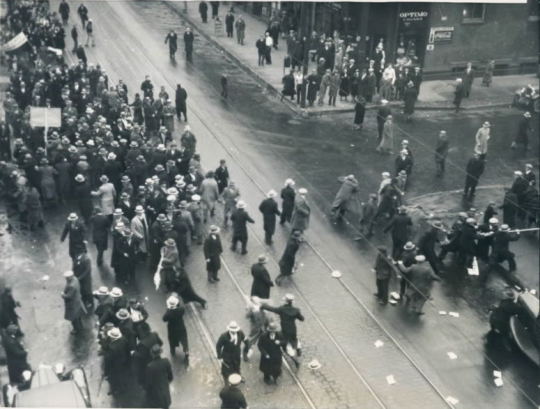
Communists attack anti-Holodomor parade of Ukrainians in Chicago, 1933
#ukraine#war in ukraine#communism#anti communism#hate crimes#xenophobia#russian propaganda#holodomor#communism is red fascism
422 notes
·
View notes
Text
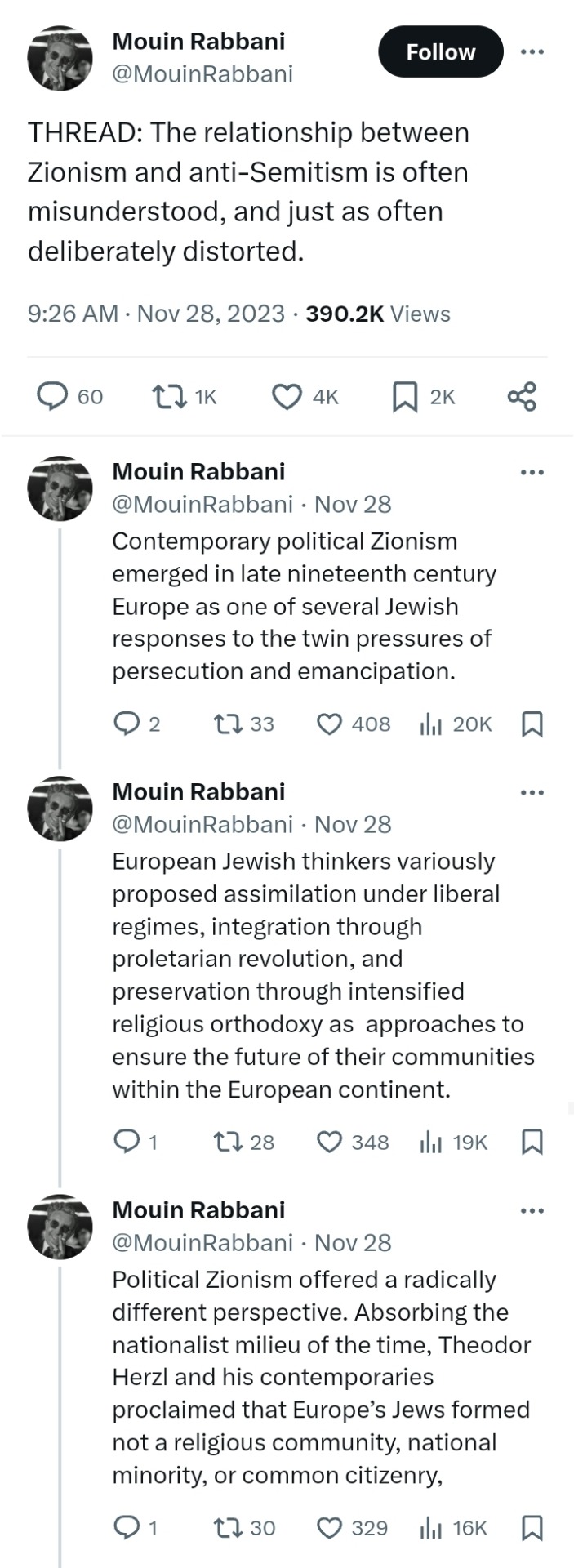
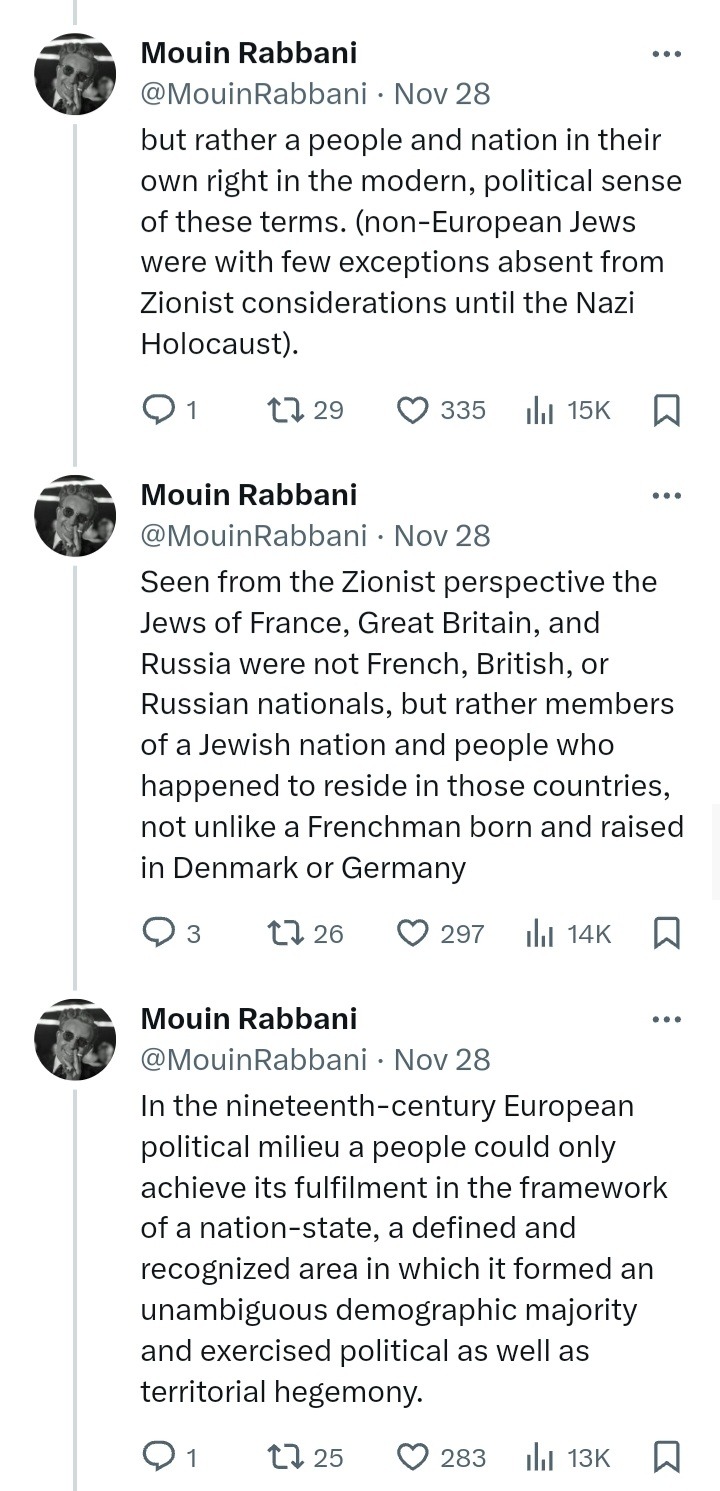
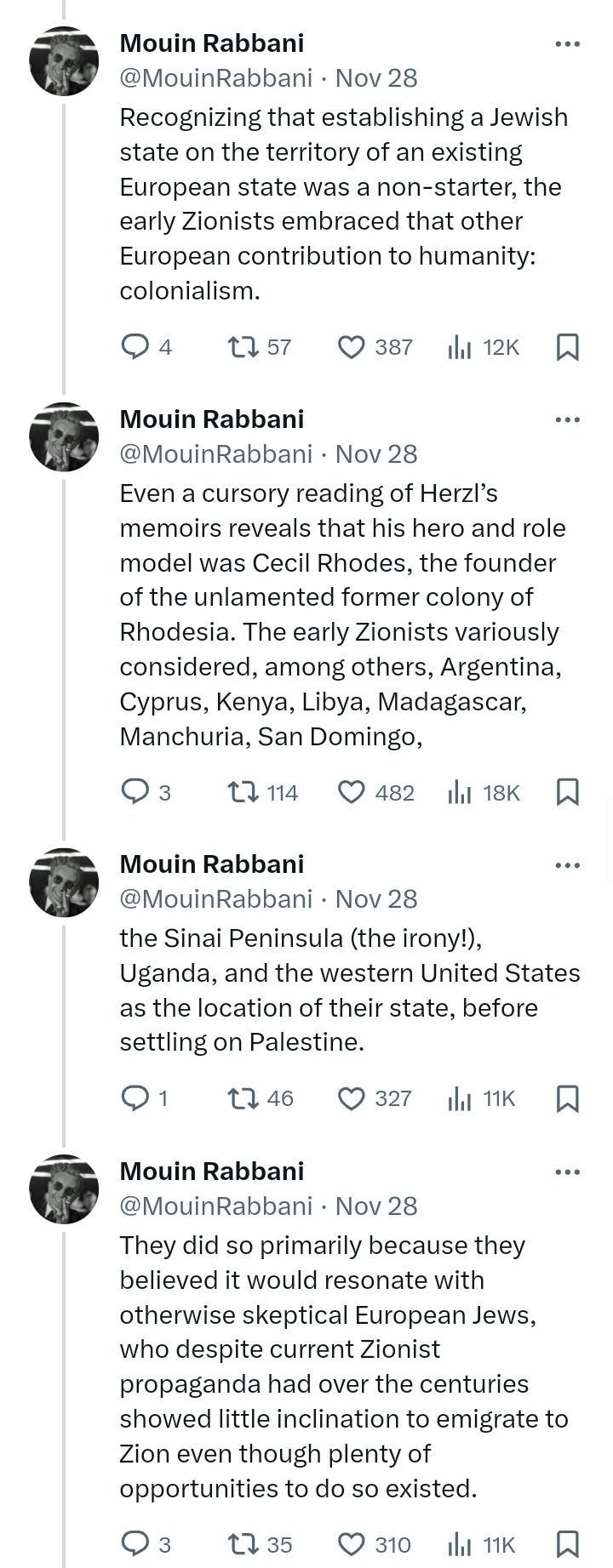
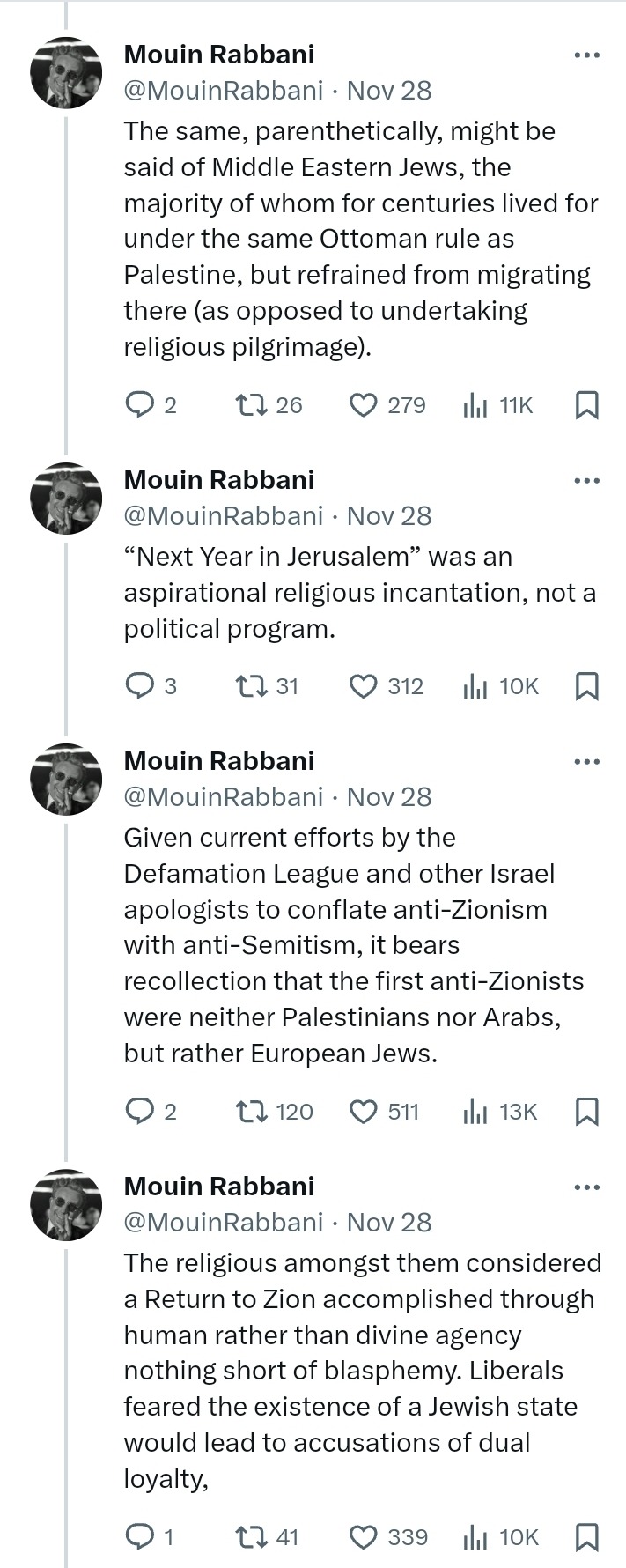
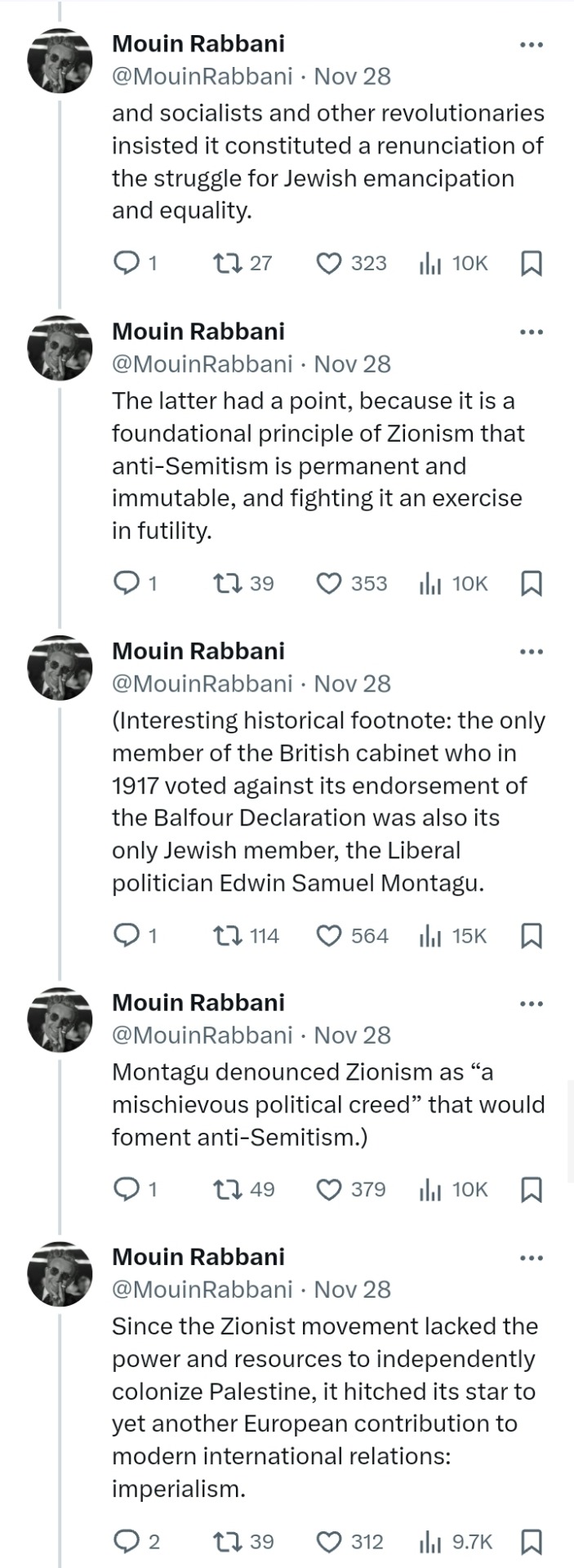
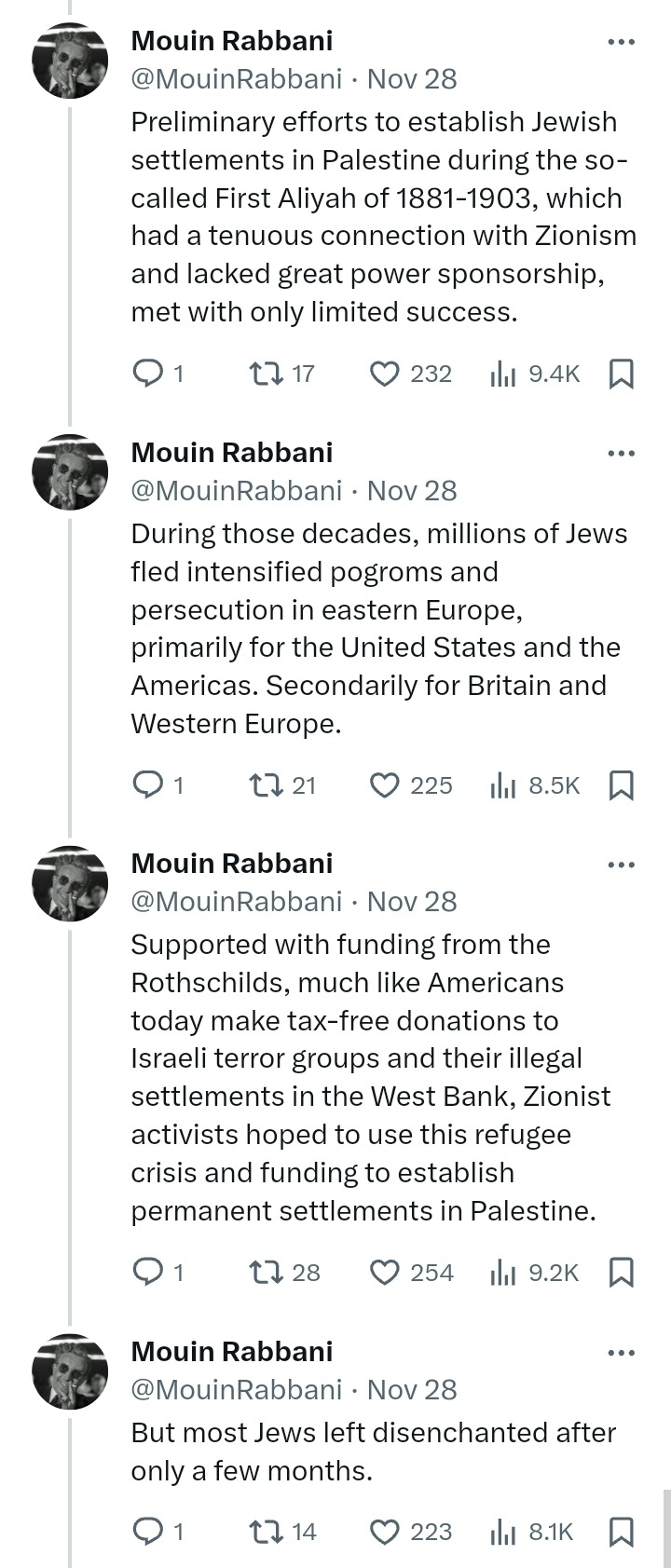
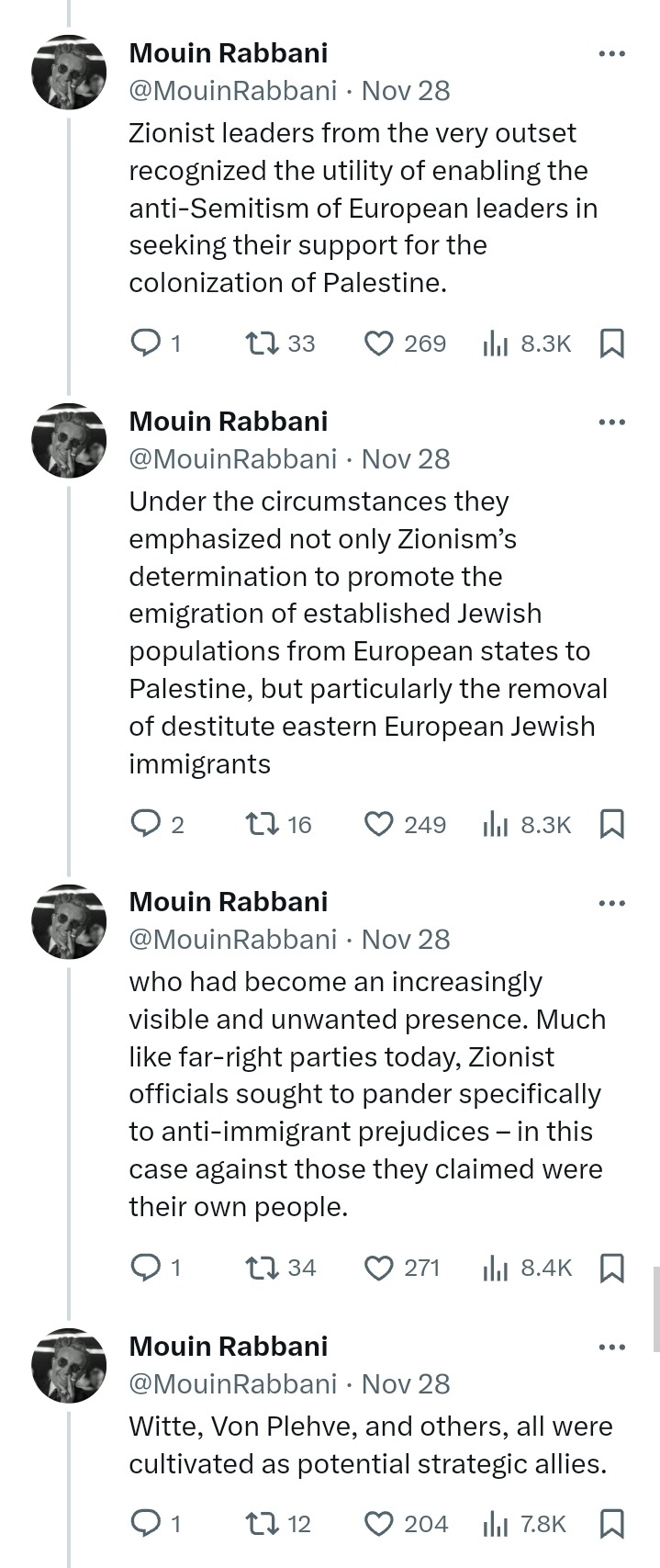
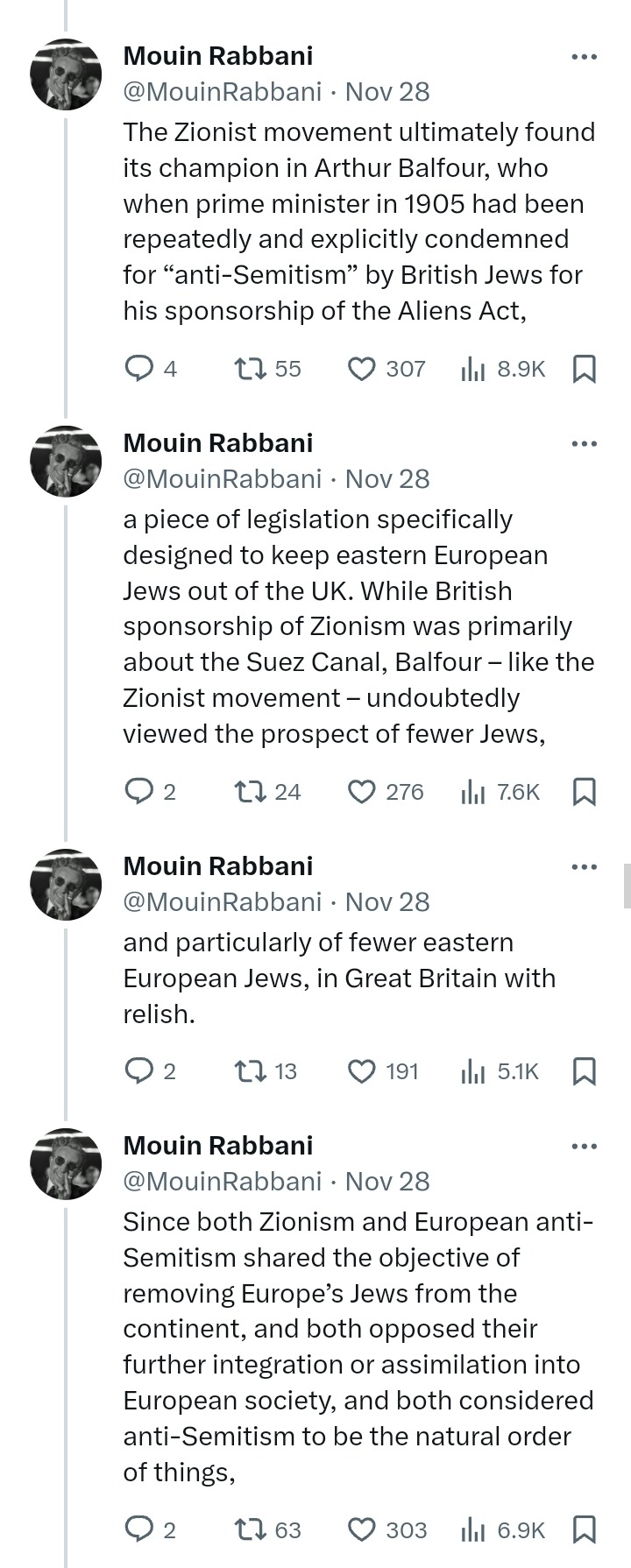
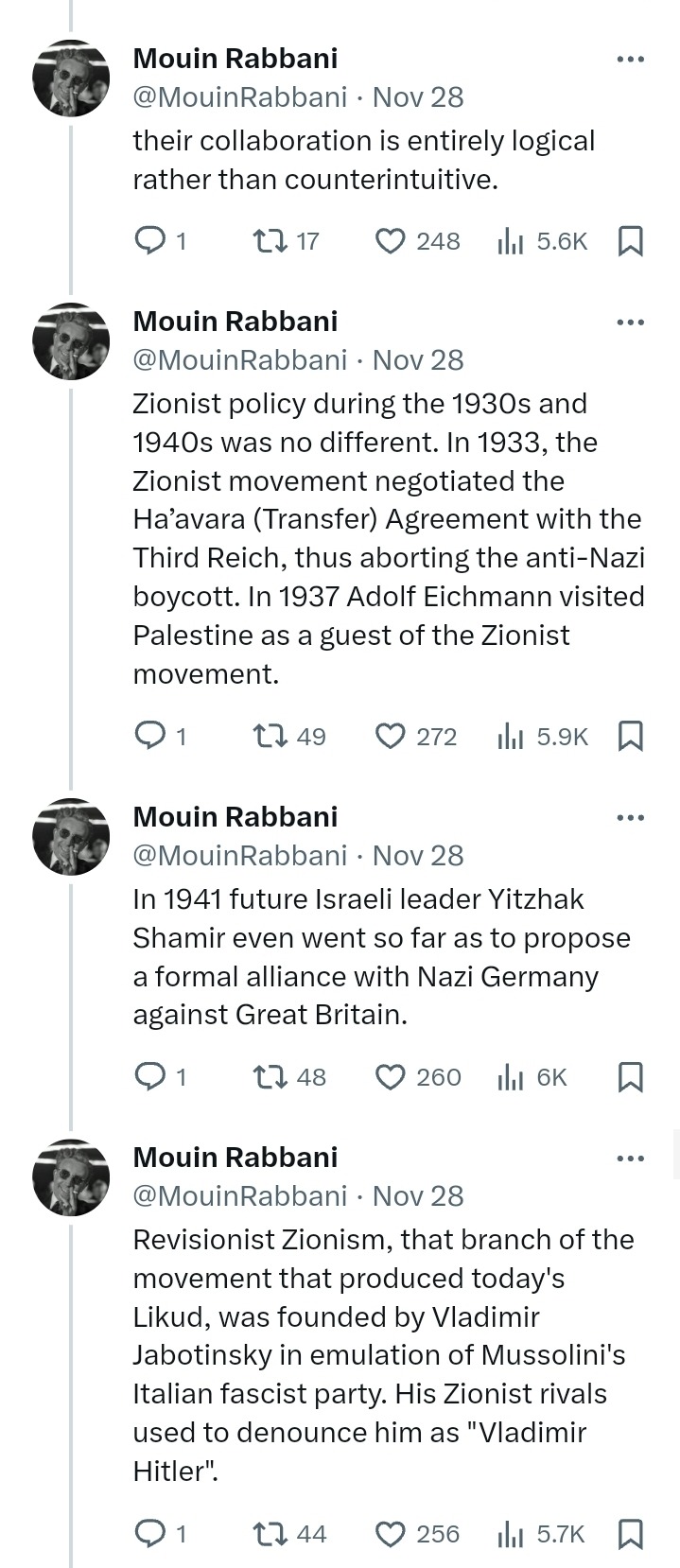
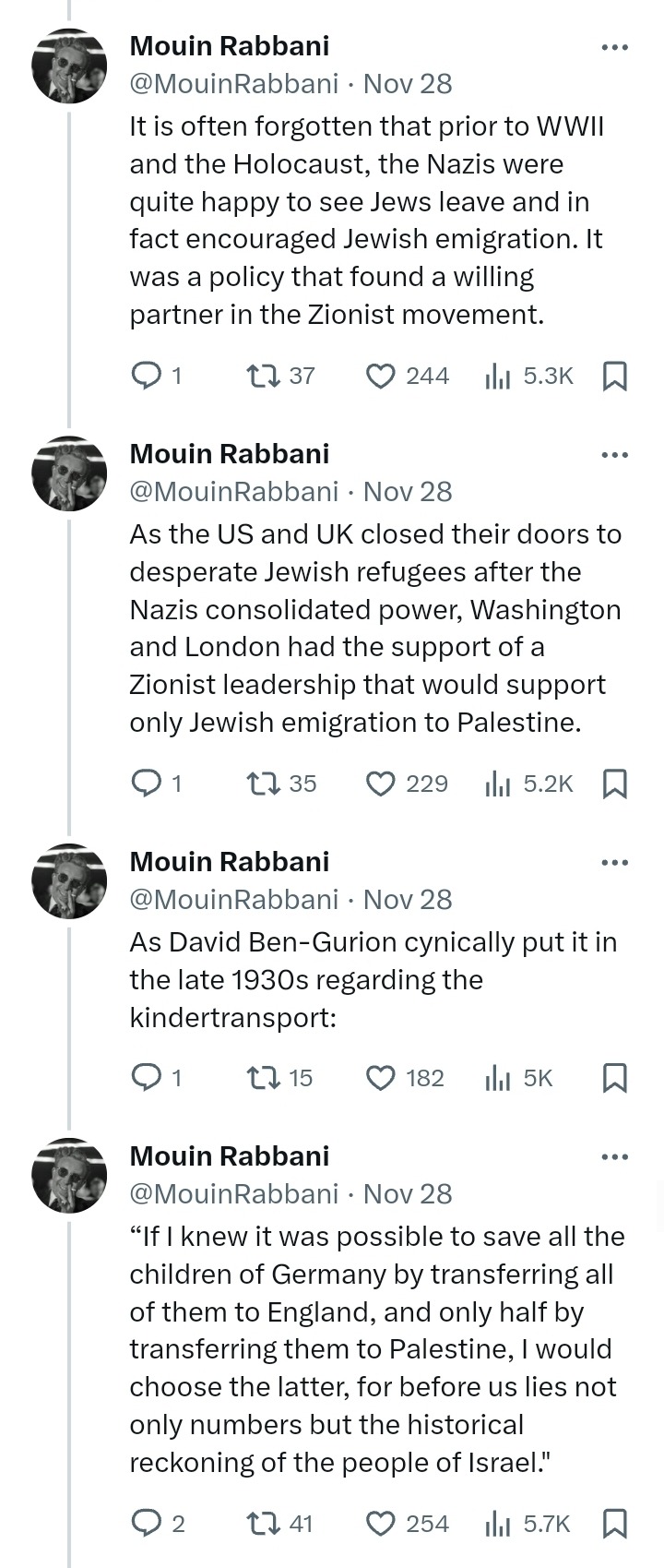
(cont'd in reblog.)
#free palestine#anti zionisim#anti zionist#colonization#imperialism#apartheid#antisemitism#world history#western imperialism#theodor herzl#colonialism#balfour declaration#cecil rhodes#racism#anti blackness#zionist propaganda#settler colonialism#palestinian genocide#christian zionism#xenophobia#immigration#middle east#islamphobia#david ben gurion#holocaust#nazi germany#MENA#knee of huss#xtianty
61 notes
·
View notes
Text
swifties being xenophobic and racist. raise your hand if you’re NOT at all surprised! 🙋🏻♀️



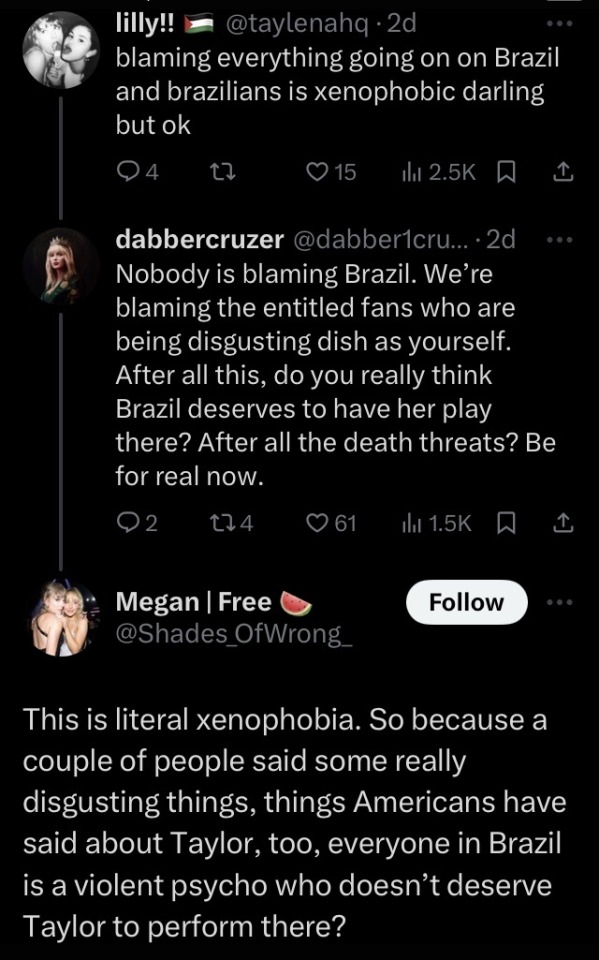


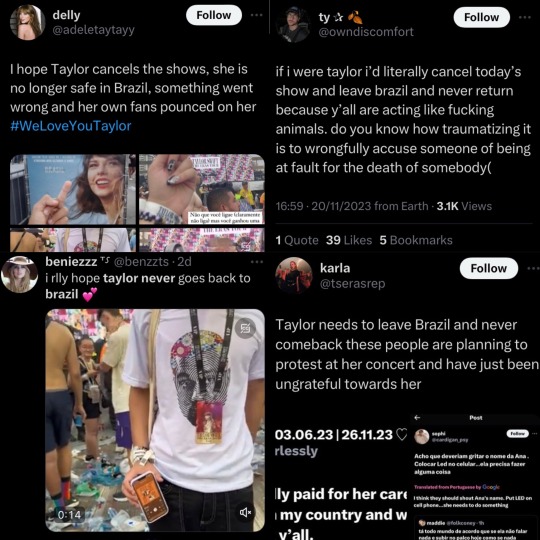
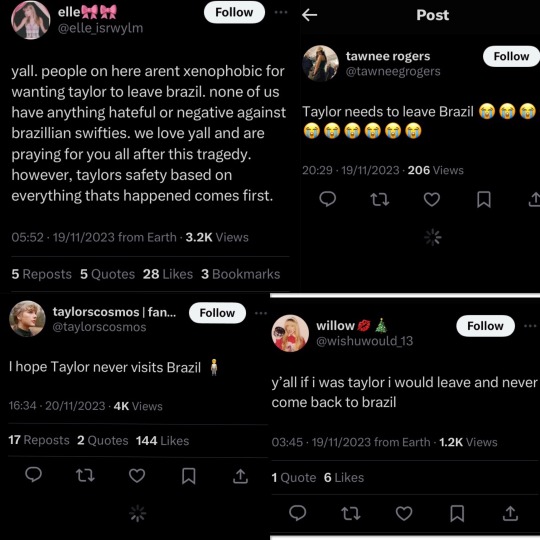


75 notes
·
View notes
Text
People can unquestionably be deeply weird about food (see: recipe bloggers who are more about conspicuous consumption than actually good recipes; people who leave comments on recipe blogs about how fruit or god forbid carrots are unhealthy because - checks notes - they contain too much sugar; tr*dwives trying to politicize photos of bread; Silicon Valley guys selling fad diets). I find this as annoying as anyone (v possibly I find it more annoying, as a person who likes to cook!). However I also find it annoying when people act as if the act of cooking elaborate (or even not-so-elaborate) meals is in and of itself something weird and snobbish. Cooking is like the single most accessible hobby bro. The end product is food and you kinda need that to live, and also it’s often cheaper to make things yourself assuming you can afford the time cost. “God save us from people who make pasta sauce from scratch, why would anyone do this” well you see, sometimes people have hobbies. Sometimes people enjoy the process of creation as much as the thing itself, even. Sue me for finding joy in the stuff I’m compelled to put in my face to stay alive I guess
#culinary adventures#my posts#also sometimes people rag on ‘fancy’ (unfamiliar) food in a way that’s like…#‘i’m complaining about foreign films and framing it as anti elitist but really it’s giving straightforward xenophobia’#sorry i’m still not over the person who said it was pretentious to make beans from scratch when canned food exists#you realize it takes a grand total of two minutes to put dry beans and spices in a slow cooker which i bought for $5 at a yard sale#they are ready the moment i step through the door from work AND they are cheaper AND they are tastier. win/win/win
22 notes
·
View notes
Note
Hi! I hope I do not bother you, but I'd like to ask a thing (if you already answered this in another ask I'm sorry) because you seem to be the most qualified person to answer. In a retelling, when how much is too much changing? I am writing two whole Arthurian fics and while I mostly mix and match from different versions there are some things I fully changed (one of the most egregious, for example, being Palamedes dying early in Post-Vulgate fashion and Safir as the one who slays the Questing Beast and the killing being an expression of vengeance instead of newly-found peace despite this definetely not being the case in the original text). I think what I changed works better for plot reasons but I am a bit uncomfortable with it, especially when it comes to characterization. But on the other hand there are so many different versions that I find it hard to say if I am ruining it or not because even in the canon plots and characters' personalities change a lot but I don't want to do something that ends up being "in name only". When is too much too much?
Hello! I don't know about being the most qualified person to answer, but I can certainly give you my answer! I've explained this a little bit before here and here, but can elaborate again for you, especially because I think those characters and that text in particular should be handled with care.
Before you determine what amount of reinterpretation constitutes the right balance, pause everything, and pinpoint your audience. Are you writing fanfiction for your own self-fulfillment and enjoyment? Maybe also for a handful of friends who share your ideas? In that case, there are no rules, do whatever you want. That's your space, your story, and you bear no responsibility to uphold some unquantifiable standard of characterization "accuracy." Fandom is your sandbox and you can build whatever castle you want! Be free!
The next thing to determine is what characters you're changing and why. Not all changes are created equal! For example, if you wanted to absolve Arthur of the May Day Massacre to write a more honorable King, it's not all that drastic a change. There are many texts, old and new, in which that narrative beat never occurs. If noble Arthur serves your story better than morally gray or evil Arthur, and it can be done without compromising the Arthurian fabric from which you sample, go for it. Alternatively, if you decided to incorporate additional violence into the story, especially if attributed to a character who had not previously done those things (such as rapist Gawain, ie, inverting his Maiden's Knight role he's known for), you're going to have a harder time selling the reader on it. Generally speaking, a positive or neutral change will always be easier to sell than a negative one.
This is especially important if you intend to publish something you write for a broader audience. That's a different matter, in my opinion. In that regard, the thing you create is contributing to an Arthurian body of work that's meant to stand on its own. Fanfiction exists in a writing niche which assumes a base knowledge from the reader, you may not necessarily explain what Camelot is, or what chivalry means, or who Palomides is. That's fine and dandy. It's for fun!
But with a published book standing alone on the shelf, the author is expected to establish the framework of the world their story takes place in. That may or may not align with "canon" and therefore maintain or depart from the expected. This is where your decisions as an author matter. While Arthuriana is anachronistic by design as a literary tradition that's evolved alongside its authors, the moment you decide on an era to write in (if you put a year to it or imply one based on what historical aspects emerge), you now bear responsibility to depict that as accurately as you can. Even if it's a mishmash of "Medieval" spanning a few centuries, it should still bare resemblance to the era. Particularly in our current political climate with constant misinformation and even disinformation spreading, it's important to do the research necessary to create something genuine so as to avoid misrepresenting the past and the people in it. For example I think it would do a disservice to an Arthurian story to ignore religion, particularly one about Palomides or his brother Safir. To write them as areligious is to ignore the role in the Arthurian narrative they were created for. They're Saracen, (even if Palomides converts in some versions), and to ignore the way religion and race interconnect in Medieval society would be disingenuous.

[Idols in the East: The Saracen Body by Suzanne Conklin Akbari]
And, more to your point, that aspect informs character. The stories define Palomides by his religion, by his race, and how that impacts him in the face of a rivalry with Tristan, a white Christian, for the love of Isolde, another white Christian. This isn't to say that you're obligated to depict racism, or to put the characters into situations that oppress and hurt them, but to write something "race blind" is to erase the character's identity, and that would be too great a change, for me personally, to get by.
That being said, if you're writing in 6th century Britain, your research might lead you to think, "Hey wait a minute, Islam doesn't exist yet! But Palomides and Safir are written as Muslims, so how can I stay true to both the era I'm writing in and the characters if that anachronism is built right in?" Well, that's where you have wiggle room to be creative! Perhaps they're Zoroastrians or follow one of the many Berber religions that existed at the time. Even Tristan could reasonably be written Pagan in this era, as he has in many retellings before you sent this ask. Maybe Tristan's Mithraic or Druid or Jewish and that in and of itself helps mitigate some of the tension between the characters as neither are Christian. All of this should be handled with great care, of course, but the point is that there aren't really straight answers about what changes are worth making.
Your discomfort in this isn't unjustified. I've been there. But it doesn't mean you're doing anything "wrong." It's not a crime to conceptualize changes. I had a lot of anxiety writing Ragnelle and her brother Gromer as Zoroastrians. But I went on to find an editor who studied the religion, and asked my Zoroastrian mutual for help, who put me in touch with a practitioner that agreed to beta read my books and inform me on my handling of it. There's no perfect story, but all you can do is give it your best effort.
I don't think it'll benefit you to worry about "ruining" the story with changes such as Safir pursuing the Questing Beast. That sounds awesome! And your plan about vengeance is baked right into the source material, as the Post Vulgate indicates that QB had killed all of Palomides's brothers before he finally defeated her, so your story has some textual basis in a medieval source. (Not that you need it to be "allowed" to write that, but it may help your anxiety to know!)

[Post Vulgate Quest for the Holy Grail: 87. Galahad and Bors Chase the Questing Beast and Meet Palamedes and His Father, Esclabor the Unknown.]
One other thing I'll point out is choosing the language you use matters a lot. You can have some characters behave a certain way toward Palomides or Safir or this "futile" quest that resembles historical prejudice while utilizing word-choice throughout that signals to the reader you, the author, know what you're doing and understand the nuances at play. Reading broadly will help you with this so much. Not just non-fiction for your research, but other Arthurian retellings as well. I personally didn't love Persia Woolley's handling of Palomides in her Guinevere Trilogy. He was referred to as "the Arab" throughout which seemed like a "lesser evil" placeholder for "the Saracen." It's usage acted as a generalized umbrella term to other Palomides and didn't indicate his area of origin beyond constantly reminding the reader that he wasn't white. (Whereas Gawain was "the Orcadian" and Lancelot "the Breton," which differentiated their white cultures from one another while homogenizing Palomides with every other Eastern person in the story as a monoculture.) Furthermore, many characters were afraid of him (I mean literally making the sign of the cross and hiding when he walked in the room), which isn't consistent with a Post-Roman Britain, in which the population would have been mixed. I prefer the handling of Numidian Sagramore in Bernard Cornwell's Warlord Chronicles. Sagramore, as a Black man, is a part of Arthur and co's community, even if the Saxons themselves are unnerved by him. He's respected by the narrative. It's usually better to be specific (Numidian Sagramore versus Arab Palomides) particularly if that character is a minority and the word is leaving the mouth of a white character. This article discusses this aspect at length and really eased my own concerns depicting these characters and doing them justice.

[Saracens and Black Knights by Maghan Keita]
Here's another example of generalized versus specific language.
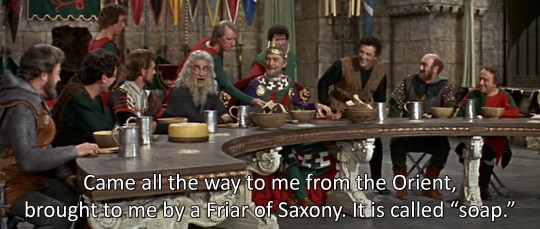
[Sword of Lancelot 1963: Merlin refers to "the Orient."]

[The Adventures of Sir Lancelot 1956: Merlin refers to "the Iberian Peninsula."]
So in my opinion, as long as you don't white wash Palomides or Safir and avoid writing them as "exotic" or "mysterious" or in some way barbaric in the pursuit of the Questing Beast, you're fine. Even in La Tavola Ritonda, Percival pursues QB for a time before Palomides picks up the quest, which is the opposite order in which that occurs in Post Vulgate where Percival and the other grail knights assist Palomides to defeat her at the very end. Many versions don't maintain the incest-monster aspect of QB from Post Vulgate either, like in Perlesvaus or Moriaen, she's just a monstrous creature and that's sufficient to tell the story the author has in mind. Even from a characterization standpoint, Malory wrote Palomides as volatile and melodramatic, having fits in the woods over his grief from which only Tristan could coax him out of, where in La Tavola Ritonda, Palomides is mostly chill and sweet, to the point Dinadan teases him for being a push-over haha! In regards to Safir, there's far less textual source material to base him off of than Palomides, so you have even more creative freedom! Literally the spectrum is so vast you can pretty much characterize however you desire if you keep in mind what the core of the character is and why that's important to their identity and the historical significance of that identity. (Even if it's something you have to bulk up, such as you will for Safir.) If you're ever unsure, it's never a bad idea to ask! Plenty of historians, or medievalists, Arthurian enthusiasts, or people of different cultures would love to discuss this subject. You might have to dig a little, but I can't imagine it'll be harder than my search for a queer Zoroastrian beta reader willing to read a trilogy-length Wedding retelling haha! It'll benefit your writing to submit to the mortifying ordeal of being known so others can give you feedback. Share some passages with a trusted few and gauge their reactions. Read what other people have done and take notes about the way they chose to characterize Palomides or Safir—did [aspect] resonate with you? Or did [aspect] ring false? Exploitative? Hollow? Why? Then step back, take another look, and go from there. It's about vibes and can't be defined, but you'll know when you know.
Hope this helps. Good luck and have a nice day!
#arthurian legend#arthurian legends#arthuriana#arthurian mythology#arthurian literature#palamedes#palomides#sir palamedes#sir palomides#sir safir#the questing beast#questing beast#glatisants#writing#orientalism#racism#history#islamphobia#xenophobia#anti blackness#colorism#ask#anonymous#my post
23 notes
·
View notes